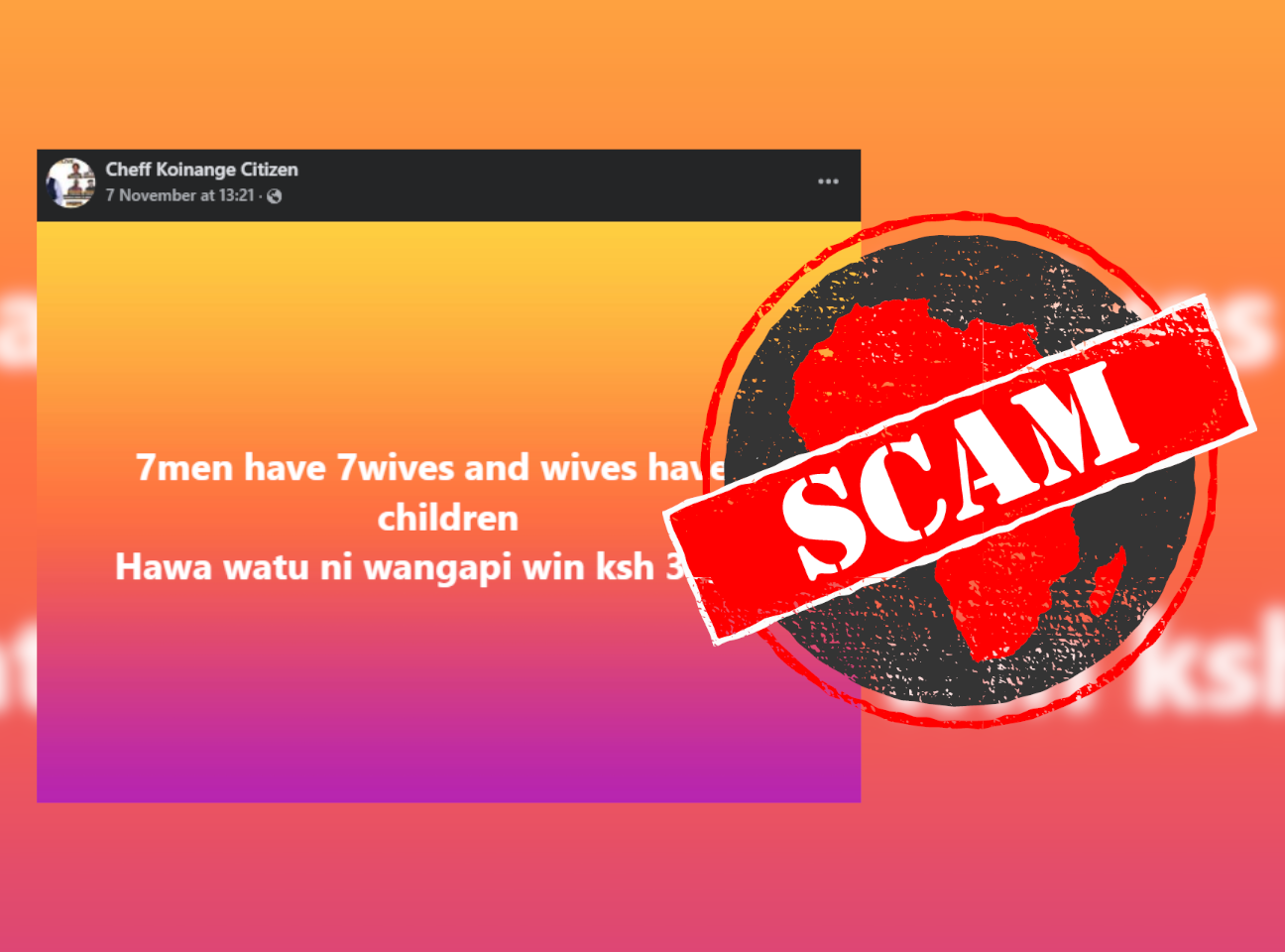IN SHORT: This Facebook account wants users to engage with its posts for a chance to win tens of thousands of Kenyan shillings. But it is just another imposter account running scams in the name of a prominent Kenyan journalist.
The Facebook account Cheff Koinange Citizen is running promotions on Facebook and promising users at least KSh35,000 (US$230) in prizes.
The account uses the misspelt name of Kenya’s Citizen TV news anchor Jeff Koinange, his photo and an image advertising his programme.
The promotions include simple queries and to participate, users are asked to respond in the comment section.
One such post reads: “7men have 7wives and wives have 7 children. How many people are these? Win KSh35,000.”
The promotions appear on Facebook groups here, here, here, here, here, here, here, here, here and here.
But is the account run by Koinange? We checked.

Imposter account
The account’s misspelling of Koinange’s name is the first red flag. His first name is “Jeff” and not “Cheff”.
The account’s ads are poorly written, often containing glaring grammatical errors and misspelt words, signalling they are not from Koinange’s social media account.
Facebook allows public figures, such as the journalist, to verify their pages on the platform. These pages then carry the “blue tick” verification badge.
Koinange’s official Facebook page Jeff Koinange is verified and has over a million followers. We could not find the promotions on the page. It is unlikely that he would operate two Facebook accounts and dedicate the less popular one to loans.
We noted that the account invites users to engage privately on WhatsApp. We contacted the account and were asked to pay KSh386 “processing fee” to a different number for us to be awarded. This is a clear sign of scam.
The account is run by an imposter and its posts should be ignored.
Republish our content for free
For publishers: what to do if your post is rated false
A fact-checker has rated your Facebook or Instagram post as “false”, “altered”, “partly false” or “missing context”. This could have serious consequences. What do you do?
Click on our guide for the steps you should follow.
Publishers guideAfrica Check teams up with Facebook
Africa Check is a partner in Meta's third-party fact-checking programme to help stop the spread of false information on social media.
The content we rate as “false” will be downgraded on Facebook and Instagram. This means fewer people will see it.
You can also help identify false information on Facebook. This guide explains how.




Add new comment